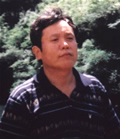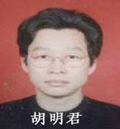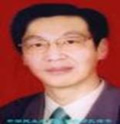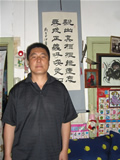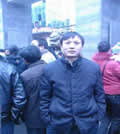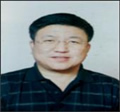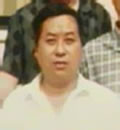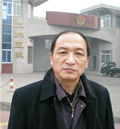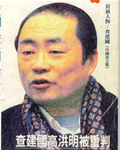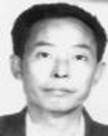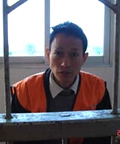Formerly imprisoned workers:
Those who paved the way for today's workers' leaders
Strikes and worker protests are now so common in China that the authorities generally have no option but to take a hands-off approach and try to get workers and management to resolve their dispute in-house. If the police are dispatched, it is usually in an attempt to contain the situation; arrests are only made if the protest gets out of control. And only in a very few cases are workers actually charged with criminal offences – see the criminal cases section for more details.
This was not always the case. In the early days of the modern workers’ movement in China, strikes and protests, particularly those at state-owned enterprises, were seen by the authorities as a threat to political stability. Labour activists and workers’ leaders were routinely targeted and many were sentenced to long prison terms (ten years or more) on trumped-up political charges such as “subversion of state power” (颠覆国家政权罪). Other workers were convicted of “hooliganism” or other public order offences after organizing strikes, protests or petitions. Many activists were punished simply because they had passed information about the workers’ movement to foreign media organisations.
By the late 2000s, however, the authorities finally realised that cracking down on workers’ leaders could not stop the workers’ movement. Both the number of worker activists sent to prison and the length of their sentences declined noticeably.
The vast majority of those workers imprisoned in the 1990s and 2000s have now been released, although sadly some died while in prison or soon after their release. The following list of formerly imprisoned workers and activists now stands as a commemoration of some of the pioneers of the workers’ movement in China; those whose struggle and sacrifice paved the way for today’s workers' leaders.
| CASE PROFILES | ||
| Please note: Since it is often difficult to obtain reliable news about politically sensitive cases in China, some of the information in the following case profiles might be out of date or at variance with other published accounts. If readers have any updated and reliable information on these cases, please do let us know via email clbeditor@clb.org.hk | ||
|
Chen Yuping 陈玉平
In 2004, state-owned Jilin Petroleum started to lay off workers. One of those laid off, Chen Yuping, was elected as a workers’ representative. In February 2008 Chen and other workers applied to the Songyuan Municipal Federation of Trade Unions to set up a trade union but the application was rejected. Workers’ representatives also circulated a report on the company’s lay off plan and the union application amongst employees. As a result, Chen was threatened and was put under surveillance by the Songyuan public security bureau. In April 2008, Chen distributed the report to several overseas media organizations. On 10 April 2008, Chen was detained and on 6 May 2008 he was sentenced to one and a half years re-education through labour for "disturbing social order." After his release in July 2009, Chen almost immediately began petitioning the government for redress against his sentence. Two other workers Zhang Fuhui and Huang Jingzhe were detained for ten days for talking to overseas media. |
||
|
Ding Xiulan 丁秀兰 and Liu Meifeng 刘美凤
Ding and Liu, both workers at the Zhongheng Textile Factory in Funing county, Jiangsu, reportedly led laid-off factory workers to stage protests at the factory’s entrance and demand reasonable compensation following the privatization of the former state-owned enterprise. After receiving no response from the company,Ding and Liu then led several hundred workers to demonstrate outside the Yancheng municipal government building on 2 October 2004 in an attempt to get the local government to intervene with the company on the workers’ behalf. On 20 October, both Ding and Liu were arrested for “gathering a crowd to disturb social order.” There has been no further news of their fate since then. |
||
|
Du Hongqi 杜红旗
Du Hongqi and his wife, Li Tingying, both workers at an armaments factory in Chongqing, run by the South China Industries Group, were detained for independent trade-union organizing activities on 24 November 2003. The Chongqing No. 338 Factory was going bankrupt and had been taken over by another enterprise, and 700 of the 1,500 factory workers were then laid off. Du and Li had founded an unofficial trade union in September 2003 to fight for better working conditions and had organized their fellow workers to carry out several petition and protest actions. Du was sentenced to three years’ imprisonment on 18 October 2004. (Li Tingying was also detained by police in late 2003, but she was subsequently released without being tried or sentenced.) |
||
|
Gao Hongming 高洪明 1950 –
In January 1998, Gao Hongming, a veteran of China's 1978-79 Democracy Wall Movement, and his fellow activist Zha Jianguo, wrote to the head of the then All-China Federation of Trade Unions (ACFTU), Wei Jianxing, and applied for permission to form an autonomous labour group called the China Free Workers Union. In a statement faxed to the National People's Congress at that time, Gao said: "China's trade unions at all levels have become bureaucracies, and their officials bureaucrats. This has resulted in the workers becoming alienated [from the official union]." In early 1999, after also playing a leading role in the formation of the now-banned China Democratic Party (CDP), both Gao Hongming and Zha Jianguo were arrested for organizing ten-year anniversary memorial activities for the 4 June incident. On 2 August, Gao was sentenced to eight years’ imprisonment and Zha to nine years for “subversion of state power”. On 17 September 1999, the Beijing High People's Court rejected the appeals of both men. Gao was released from Beijing No. 2 Prison on 28 June 2007. Follow Gao Hongming on Twitter |
||
|
||
|
Hu Jing 胡敬 Hu Jing was a laid-off workers’ representative from the bankrupt Jianshe Motorcycle Corporation in Chongqing. In 2005, after petitioning on behalf of workers' rights in Beijing, Hu was sent by Chongqing police to a local psychiatric institution where he was reportedly mistreated. After release, Hu obtained an independent diagnosis from another hospital that pronounced him mentally healthy. The Chongqing police retaliated and sent him back to the local psychiatric institution in November 2007. Hu was subsequently released on 10 January 2008. |
||
|
||
|
Hu Shigen 胡石根 1954 –
A former academic at the Beijing Foreign Languages Institute, Hu Shigen (also known as Hu Shenglun) was a founder in 1991 and 1992 of both the Free Labour Union of China (FLUC) and the China Liberal Democratic Party (CLDP). Arrested in May 1992 along with 15 other activists from the two groups, he was charged on twin counts of "organizing and leading a counterrevolutionary group" and "engaging in counterrevolutionary propaganda and incitement." After two years' detention, Hu Shigen and the other members of the "Beijing Sixteen" were brought to trial in Beijing. Hu received the heaviest sentence of all - 20 years' imprisonment, and suspension of political rights for five years. He received a seven-month sentence reduction in December 2005. He was given an additional 17-month sentence reduction in 2007, and another reduction by 21 months on 1 April 2008. Released on 26 August 2008. |
||
|
Kong Jun 孔君
Kong Jun and Li Xintao, both labour rights activists from Shandong, were tried on 11 May 2005 by the Mouping District Court in Yantai, Shandong. They were found guilty of "disrupting government institutions" and "disturbing social order" and Kong and Li were sentenced to two and five years' imprisonment respectively. (Li was reportedly detained in November 2004; the date of Kong's detention is not known.) They had organised public protests against the bankruptcy of their factory, the Huamei Garment Company, and had sent official complaints to Shandong provincial officials. Li and Kong claimed that managers at the company, which declared bankruptcy in August 2002, had failed to pay the workers' wages or social insurance benefits from March 2001 onwards. Both worker activists planned to appeal against their sentences but were reportedly unable to find lawyers willing to represent them. Kong was released in late 2006 or early 2007. |
||
|
Kong Youping 孔佑平
Kong, born 25 January 1956, was a former official trade union chairman at a state-owned enterprise in Liaoning. His support for protests by laid-off workers and his sharp criticism of government corruption and suppression led to his dismissal from both the factory and the union. In the late 1990s, Kong and a group of political dissidents were working to establish a branch of the China Democracy Party (CDP) in Liaoning, and in 1999 Kong was detained and imprisoned for a year on charges of "incitement to subvert state power". Prior to his later arrest and trial, Kong was reportedly involved in planning the establishment of an independent union and had posted articles on the Internet criticizing official corruption and calling for a reassessment of the 4 June Massacre. Kong Youping was sentenced to 15 years' imprisonment for “subversion of state power” on 16 September 2004 by the Shenyang Intermediate People's Court. |
||
|
Li Guohong 李国宏 1966-
Li Guohong was a laid-off workers’ representative at the Zhongyuan Oil Field, owned by China Petroleum and Chemical Corporation (Sinopec). Since 2001, the Zhongyuan Oil Field had laid-off 10,000 workers without adequate compensation. In 2006, representatives of the dismissed workers petitioned the higher authorities, and in 2007 planned to bring their case to court. Because of this, many suffered beatings and detention. On 31 October, Li went to the headquarters of the Zhongyuan Oil Field in Puyang, Henan, to learn about workers in detention, but was placed in administrative detention for 15 days. When he was due to be released on 16 November, the Zhongyuan Oil Field Public Security Bureau sent him to the Henan Puyang Work Camp for Reeducation Through Labour for one and a half years. While in detention, Li was deprived of visitation rights until in January 2008 when he staged a hunger strike that attracted local and overseas attention. Forced labour, physical and psychological abuse seriously damaged his eyesight and mental health. He was released October 2008. |
||
|
Li Jianfeng 李建峰
Labour activist and former judge from Ningde, Fujian province, Li was released after serving 11 years of a 16-year prison sentence on 2 April 2013, according to official documents posted by Human Rights in China. Li was detained when President Xi Jinping was party secretary in Fujian province. Prosecutors charged Li and seven other defendants with organizing an illegal labour union and plotting to shoot out the windows of the Ningde Intermediate People’s Court. The defendants denied the charges and claimed that police tortured them and fabricated evidence. Li was convicted of subversion and weapons charges in 2003. |
||
|
Li Shuchun 李淑春
Li was a former worker at a stock-breeding centre at the Red Flag Farm, Yilan county, Heilongjiang. On the morning of 15 August 2007, Li and more than 50 fellow workers went to the provincial capital Harbin to present a petition concerning social insurance rights and alleged management corruption at the livestock centre. As the petitioners turned into a suburban highway in the county town, they clashed with traffic police and government officials who had attempted to thwart the petitioners. Li was placed under administrative detention on 15 January 2008, and was formally arrested on 4 March. Li was sentenced to 18 months imprisonment for “gathering a mob to disrupt traffic” on 20 August 2008. In January 2009, the Harbin Intermediate Court sent Li’s case for retrial, and Li was released on bail in March 2009. |
||
|
||
|
Li Xintao 李信涛
Li Xintao and Kong Jun (see above) were tried on 11 May 2005 by the Mouping District Court in Yantai. They were found guilty of "disrupting government institutions" and "disturbing social order" and Kong and Li were sentenced to two and five years' imprisonment respectively. (Li was reportedly detained in November 2004; the date of Kong's detention is not known). Both worker activists wanted to appeal their sentences but were reportedly unable to find lawyers willing to represent them. Kong Jun was released from prison after completing her sentence. |
||
|
Liao Shihua 廖实华 1949-
Liao Shihua was a worker at the Changsha Automobile Electronics Factory. In October 1998 Liao led a mass protest action against corruption at the factory calling for proper health care coverage and housing benefits for the factory's retired and laid-off workers. In June 1999, Liao joined more than 100 laid-off workers to stage a demonstration in front of the Hunan provincial government headquarters, demanding a resolution to the area's unemployment problems. After addressing the crowd, Liao was escorted away by an unknown person and then officially detained on grounds of "inciting the masses to attack a government office." On 7 July 1999, he was formally charged with "subversion of state power" and "gathering a crowd to disrupt traffic," and he was subsequently tried and sentenced to six years' imprisonment, and suspension of political rights for one year. He was released from the Hunan No. 1 Prison in June 2005 after completing a six-year prison sentence. |
||
|
Liu Zhihua 刘智华
A former worker at the Xiangtan Electrical Machinery Plant in Hunan, Liu Zhihua was sentenced to life imprisonment in October 1989 for taking part in a mass protest against the government's crackdown on the pro-democracy movement that year. Along with co-workers Chen Gang, Liu Jian, and Peng Shi, he was accused of breaking into the home of the factory security chief and damaging property. In September 1993, his sentence was reduced to 15 years' imprisonment with five years' subsequent deprivation of political rights, but in 1997 his sentence was extended by five years for inflicting "injury with intent" whilst in prison. In June 2001, Liu's sentence was again reduced by two years, He was released in January 2009 from Loudi Prison in Hunan. |
||
|
Luo Mingzhong 罗明忠 etc 1953 –
Born in 1953 in Sichuan, Luo was laid off from his job at the Taiyuan Chemical Factory (part of Taiyuan Holdings), in Yibin, Sichuan in 2004. He led his fellow workers in the fight for proper compensation when the factory was privatized in 2003. On 22 March, 2004, he was placed under administrative detention for ten days for blocking the road and obstructing traffic. In July 2005, Luo, together with fellow laid-off workers Zhan Xianfu, Zhou Shaofen and Luo Huiquan (骆惠全) led workers to block the main factory gate in protest at the insufficient compensation offered for their loss of livelihood. Yibin Public Security officers arrested the four leaders for allegedly “gathering a crowd to disturb public order.” On 26 July 2005. In April 2006, the Cuiping District Court in Yibin convicted all four defendants on the charge of “gathering a crowd to disturb public order.” Luo Mingzhong and Luo Huiquan were sentenced to two years imprisonment. Zhan Xianfu was given a one and a half year prison sentence, suspended for two years. Zhou Shaofen was given a one year sentence, suspended for one year. Luo Mingzhong and Luo Huiquan filed appeals, but the Yibin Intermediate People’s Court’s ruling upheld the original sentences. The two imprisoned workers were presumed released in August 2007 after completing their sentence. |
||
|
Luo Xi 罗茜
Luo Xi was arrested on 8 January 2010 for participating in and instigating a teachers’ strike in Hunan in December 2008 to demand the same wages and benefits as civil servants. Luo was sentenced to two years’ reeducation through labour in late January 2010 for “disrupting social order”. Right before Luo was arrested, he was assisting the family of Yang Kuan to seek justice. Yang Kuan, the deputy mayor of Wugang in Hunan, who was also Luo’s teacher, was found dead in November 2009. The authorities concluded that Yang committed suicide. but Yang’s family argued that Yang had been murdered and demanded a reinvestigation. Luo was held in the Shaoyang Municpal Reeducation Through Labour Camp and was released early on 19 July 2011, although his freedom is still restricted. |
||
|
Miao Jinhong 苗金红 and Ni Xianfei 倪显飞
Miao Jinhong and Ni Xianfei led a group of migrant workers in Zhejiang in blocking a railway line and attacking a police station to protest unpaid wages. Both men were detained in October 2000 and were subsequently tried and sentenced to eight years' imprisonment (exact charges unknown.) Ni Xianfei is also referred to in some media reports as Ni Xiafei 倪夏飞 |
||
|
Ning Xianhua 宁先华
Ning was a construction worker in Shenyang, Liaoning province. On 16 September 2004, he was sentenced to 12 years’ imprisonment for “subversion of state power” for attempting to organize an independent trade union. For details, see case of Kong Youping. Released at the end 2010 after serving a reduced sentence in full. |
||
|
Ren Fengyu 任风玉
On 9 September 2009, Ren Fengyu, a retired worker at the Tonghua Iron & Steel Group Co., Ltd in Jilin was sentenced to 18 months’ reeducation through labour for putting up a poster calling for the legalization of a Tonghua workers’ rights organization and the formal election of its representatives. Ren’s sentencing came after the death of steel company executive Chen Guojun at the hands of angry workers protesting the takeover of Tonghua Steel by Chen’s company Jianlong on 24 July 2009. The sentencing of Ren was believed to be a means to control and punish Tonghua workers after the July protest. On 15 April 2010, Ji Yigang, an employee at the Tonghua Iron and Steel was found guilty of intentional wounding (故意伤害罪) of Chen and was sentenced to life in prison by the Tonghua Municipal Intermediate Court. |
||
|
Shao Liangchen 邵良臣
Originally a driver in Shandong, Shao became one of the leading members of the Jinan Workers Autonomous Federation, which was formed during the 1989 pro-democracy movement. He was sentenced to death by the Jinan Intermediate People’s Court for allegedly resisting the goverment crackdown on the movement that year. However his sentence was later reduced to life imprisonment, and then eventually to 17 years' imprisonment. He reportedly died of leukemia in late 2004 shortly after being released on medical parole from Weihu Prison in Shandong. |
||
|
She Wanbao 佘万宝
She, a labour organizer and a member of the China Democratic Party (CDP), was originally a bank employee in Sichuan. On 3 November 1989, She was convicted of counter-revolutionary propaganda and incitement by the Guangyuan Intermediate People’s court in Sichuan and sentenced to four years’ imprisonment. He was released in July 1993, but was rearrested around five years later on 10 July 1999 for organizing the CDP. On 4 August 1999, he was sentenced to 12 years’ imprisonment for subversion of state power and suspension of his political rights for three years by the Guangyuan Intermediate People’s Court. She appealed to the Sichuan Higher People’s Court but was his appeal was rejected. On 9 September 2005, She’s sentence was reduced by six months. He was released on 6 March 2010 and was reportedly struggling with his health and in financial difficulty. |
||
|
Tang Aimin 唐爱民 and Hu Weimin 胡卫民
In July 2008, workers of the Tongliang County Silk Factory in Chongqing occupied the factory, protesting that their pension and medical insurance had not been considered in the company's bankruptcy process. On 15 February 2009, five worker representatives, Tang Aimin (唐爱民), Hu Weimin (胡卫民), Li Taiyuan (李太元), Ou Hongyong (欧红勇) and Wang Yu (汪宇) were arrested. Three of them were detained between ten to 15 days. Tang and Hu however were charged with “gathering a crowd to disrupt social order”. Other workers involved were summoned or “invited for chats” by the local police. Police warned the workers that if they continued to “stir up trouble”, they would be arrested as well, and these workers were closely monitored and followed by the police. The police said that Tang and Hu would be sentenced to between three and seven years’ imprisonment. The criminal trial against Tang and Hu was heard in August 2009, but there have been no reports of the outcome. |
||
|
Wang Sen 王森
Wang was one of the leaders of the banned China Democratic Party in Sichuan. He was sentenced to ten years’ imprisonment for organizing a public demonstration demanding payment of unpaid wages for the workers at the Dazhou Steel Mill. For details, see case of Hu Mingjun. Released June 2011. |
||
|
Xiao Yunliang 肖云良 1949-
Xiao was sentenced to four years’ imprisonment and suspension of his political rights for two years, for leading a mass worker protest in March 2002 in Liaoyang, Liaoning province. He was released on 23 February 2006, just 24 days before his prison sentence was due to end. Like his fellow detained labour leader, Yao Fuxin, he suffered serious health problems throughout his imprisonment, and his health remained poor after his release. Xiao is partially blind and is suffering from various illnesses including chronic respiratory disease. For details, see case of Yao Fuxin below or CLB's detailed research report on the Liaoyang workers struggle. |
||
|
Xue Mingkai 薛明凯
On 10 February, 2010, Xue Mingkai, a 20-year old factory worker from Shandong, was sentenced to one and a half year’s imprisonment for subversion of state power by the Shenzhen Intermediate Court after joining the US-based China Democracy Party. The prosecutor also claimed that Xue had started a discussion about setting up a Democratic Workers’ Party (中国民主工民党) on the Internet in 2006. He was released at the end of 2010 but detained again soon afterwards whilst looking for work in Hangzhou. He was taken back to his home town in Shandong. On 23 April, he was arrested on charges of "incitement to subvert state power." He was released on 15 September 2013 but forced to stay in Shandong. |
||
|
Yang Huanqing 杨焕青
Yang Huanqing was sentenced to one year’s reeducation through labour on 20 November 2009 by the Public Security Bureau in Gongan county, Hubei, for organizing a county-wide rights petition by teachers in June 2009, and a province-wide petition in October 2009. Yang applied for an administrative review of the sentence and was released on 29 February 2010 by the Jingzhou Municipal Reeducation Through Labour Administrative Committee. However, he received another one year RTL sentence on 27 January 2011, for organizing teachers to petition in Beijing and disrupting order. Yang is presumed now released. |
||
|
Yao Fuxin 姚福信 1950 –
In March 2002, Yao Fuxin, a worker at the Liaoyang Steel Rolling Factory, Liaoning province, and Xiao Yunliang, a former worker at the Liaoyang Ferroalloy Factory, led around 2,000 workers from the latter factory, along with a further 15,000 workers from five other factories in Liaoyang, in a series of major public demonstrations. The workers were protesting against alleged corrupt activities of managers at the Ferroalloy Factory – activities that they argued had directly caused its recent bankruptcy – and calling for unpaid wages and other owed benefits, including pensions, to be paid to the laid-off workers. After the factory was declared bankrupt in early 2002, local workers had founded the "All-Liaoyang Bankrupt and Unemployed Workers' Provisional Union" and elected Yao Fuxin as their spokesperson to conduct negotiations with the local government. In late March 2002, Yao Fuxin and Xiao were secretly detained and then formally charged with the crime of "illegal assembly and demonstration." Subsequently, on account of their alleged involvement in the banned China Democracy Party (CDP) – Yao and Xiao themselves have consistently denied any such involvement – the much more serious charge of "subversion" was brought against them. Tried at the Liaoyang Intermediate People's Court on 15 January 2003, Yao was sentenced to seven years in prison. Xiao received a four-year sentence, and was released from prison on 23 February 2006. Both men had been plagued by serious health problems throughout their imprisonment. Yao was released from prison in March 2009. |
||
|
Yue Tianxiang 岳天祥
In 1995, Yue Tianxiang, a driver at the state-owned Tianshui City Transport Co in Gansu, was laid off from his job despite being owed three months' back pay. When the company refused to negotiate a settlement regarding the wage arrears and to provide the legally-mandated living allowance, Yue and another laid-off driver, Guo Xinmin, decided to take their case to the Tianshui Labour Dispute Arbitration Committee. The Committee ruled that the company should find new positions for the two workers as soon as possible, but the company manager refused to implement this decision. When Yue and Guo learned that many of their fellow drivers in Tianshui faced the same kind of treatment, they set up a journal called China Labour Monitor and used it to publish articles on various labour rights-related issues, including reports of corruption at their former company. They also wrote an open letter to then President Jiang Zemin asking for the central government to take action on these issues. In late 1998, after receiving no response from the authorities, they distributed their letter to the international news media. A few weeks later, in January 1999, they were detained by the Tianshui police and were eventually charged with "subversion of state power". On 5 July 1999, Yue Tianxiang was tried and sentenced to ten years' imprisonment. Yue received a one-year sentence reduction in March 2005 and was released on January 8, 2008. (His fellow activist Guo Xinmin was also sentenced at the same time, but he was freed from prison around one year later.) |
||
|
Zha Jianguo 查建国 1951 -
Zha, a native of Yiqing, Jiangsu province, was the head of a cultural magazine. He was sentenced to nine years imprisonment for “subversion of state power” for his attempt to organize a tenth anniversary memorial for the 4 June Incident in 1999. For details, see Gao Hongming’s case above. |
||
|
Zhang Shanguang 张善光
Former secondary school teacher and labour activist, Zhang Shanguang, was first sentenced to seven years imprisonment after the 4 June 1989 government crackdown for his role in organizing the Hunan Workers' Autonomous Federation. While in prison, he contracted severe tuberculosis. After his release, in early 1998, Zhang was interviewed by several overseas radio stations about the widespread labour and peasant unrest in his home county of Xupu. He also gathered supporters for, and attempted to officially register with the authorities, a labour rights group that he had recently founded - the Association to Protect the Rights and Interests of Laid-Off Workers (APRILW). By July 1998, this association had attracted more than 300 members from all walks of life, including workers, peasants, intellectuals and even some local officials who were initially supportive of the group's aims. On 21 July 1998, the police detained Zhang, searched his home and confiscated all documents and correspondence relating to APRILW. Zhang's wife, He Xuezhu, was questioned and threatened by the police, who urged her to divorce her husband. His many supporters in Xupu county rose swiftly to his defense, writing numerous appeals and even staging hunger strikes demanding his release. According to one such appeal letter, "The work of Zhang Shanguang will surely encourage the people of Hunan and the whole country to wage an even wider-scale struggle to win democracy and freedom." Subsequently charged on the twin counts of "passing intelligence to hostile overseas organizations" and "incitement to subvert state power," On 27 December 1998, Zhang was tried behind closed doors and sentenced to ten years' imprisonment for “endangering national security.” His tuberculosis continued to worsen and in December 2002 he was transferred to the hospital of Hunan's Jinshi Prison. Zhang was released 19 July 2008 Detained briefly during the "Jasmine Revolution" crackdown of 2011 |
||
|
Zhao Changqing 赵常青 1969-
Zhao was first arrested in June 1989 and detained for four months at Qincheng Prison, Beijing, for having organized a Students' Autonomous Committee at the Shaanxi Normal University during the pro-democracy movement in May that year. He was arrested again in 1998 while teaching at a school affiliated with the Shaanxi Hanzhong Nuclear Industry Factory 813, after attempting to stand for election as a factory representative to the National People's Congress and publicly criticizing the All-China Federation of Trade Unions (ACFTU) for failing to defend workers' interests. In an open letter to his fellow factory workers, dated 11 January 1998, Zhao wrote: "You should treasure your democratic rights. Even if I cannot run as a formal candidate, if you believe I am capable of representing you and of struggling for your interests, then I ask you to write in my name on the ballot. If elected, I will be worthy of your trust and will demonstrate my loyalty to you through my actions." Before the workers' ballots could be cast on 14 January, Zhao was secretly detained by the police on suspicion of "endangering national security." In July that year, he was tried at the Hanzhong Intermediate People's Court on charges of "incitement to subvert state power" and sentenced to three years' imprisonment. After his release, in early November 2002 Zhao drafted and circulated an open letter to the National People's Congress demanding, among other things, an official reassessment of the 1989 pro-democracy movement and the release of all political prisoners. In due course, 192 other political dissidents signed the letter, thereby attracting widespread international attention to what was the most significant political action by Chinese dissidents at the time. In December 2002, Zhao Changqing was arrested by police for the third time and was later sentenced to five years' imprisonment for "incitement to subvert state power". Zhao was reportedly held in solitary confinement for refusing to take part in military training and having contact with detained Falun Gong practitioners. He was released on 27 November 2007 after completing his sentence. A report in 2011 claimed Zhao was not allowed to hold his wedding banquet in its planned location, and that fellow dissidents were told by the Beijing Public Security Bureau that they were not allowed to attend. |
||
|
Zhao Dongmin 赵东民
Zhao Dongmin, a charismatic Maoist activist from Shaanxi , was, on 1 January 2011, sentenced by the Xi’an Intermediate People’s Court (appeal court) to three years imprisonment, suspended for three years, for “the crime of inciting a crowd to disturb social order.” Subsequently released. Zhao had been detained on 19 August 2009 and formally arrested on 24 September of the same year. Zhao had helped set up a labour rights group, consisting of more than 380 workers from about 20 state-owned enterprises, tasked with overseeing and monitoring SOE restructuring, and reporting corruption and abuses of power. The “Shaanxi Union Rights Defence Representative Congress” was formally banned by the municipal government of Xi’an on 27 July, after which Zhao wrote an open letter protesting the action to the State Council, the municipal, provincial and central committees of the Chinese Communist Party. He was arrested soon afterwards. |
||
|
Zhou Yuanwu 周远武 1965-
Zhou Yuanwu was a workers' representative at the Jingchu Brewery in Jingzhou, Hubei. When the company was declared bankrupt in 2002, workers found that the company had not paid their pension or medical insurance. Zhou led several protests in defense of the factory workers' rights and petitioned the municipal and provincial governments. In June 2006, Zhou was detained and instructed to stop petitioning. On 18 August 2006, without formally issuing a subpoena, the Jingzhou police attempted to arrest Zhou. When he refused, he was beaten up and arrested on the grounds of assaulting a police officer. His case was heard by the Jingzhou District Court on 6 April 2007, but Zhou was deprived of his lawyer, Chen Xiongyan, after Chen was detained for violating court discipline. On 25 April, workers at the Jingchu Brewery organized a petition in support of Zhou, claiming his face was covered in blood after being beaten by the police and refuting his alleged attack on the police. On 15 May 2007, Zhou was sentenced to two and a half years in prison by the Jingzhou district court for “obstructing public officers in the execution of their duties. |
||
|
Zhu Fangming 朱芳鸣
|

